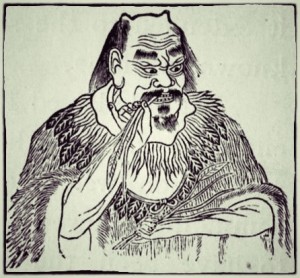The Doctrine of Signatures
Foods and herbs often mimic the part of the body they benefit.
Flowers: guide herbs to the head and upper body; effect the qi more than blood and yin.
Seeds and Fruits: influence lower Jiao and tend to enter the kidney, nourish blood, yin, and essence. Many seeds assist the bladder to promote urination. Some seeds, especially kernels, have a high lipid content to moisten intestines and move the bowels. Many fruits enter the spleen and middle Jiao to transform dampness and stagnation.
Stems, Twigs, and Vines: activate the flow of qi and blood and dispel wind-damp in the channels, collaterals, and tendons.
Roots: penetrate the body’s interior and affect the yin, either to tonify the Zheng qi or eliminate pathogens.
Shells and Minerals: are heavy and have an anchoring, downbearing effect on the shen and the qi. Minerals tend to settle and calm the shen, while shells tend to extinguish internal wind and calm the liver.
Animal Parts: tend to be salty and warm and very strong in action. Animals tend to tonify yin or yang, while insects soothe the Liver, worms transform phlegm nodules and snakes invigorate the channels.
Peels: have a natural affinity to the surface and tend to be diuretics.
- Walnuts are good for the brain.
- Tangerine seeds (Je He) treat lumps and testicular issues.
- Figs benefit the breasts.
- Carrots are rich in beta-carotine, which benefits the eyes.
- Avocados are beneficial for the uterus.
Yin and Yang
|
Yang |
Yin |
|
Warming |
Cooling |
|
Sweet, Pungent |
Salty, Bitter, Sour |
|
Energizing |
Builds Blood and Fluids |
|
Ascending Energy |
Descending Energy |

